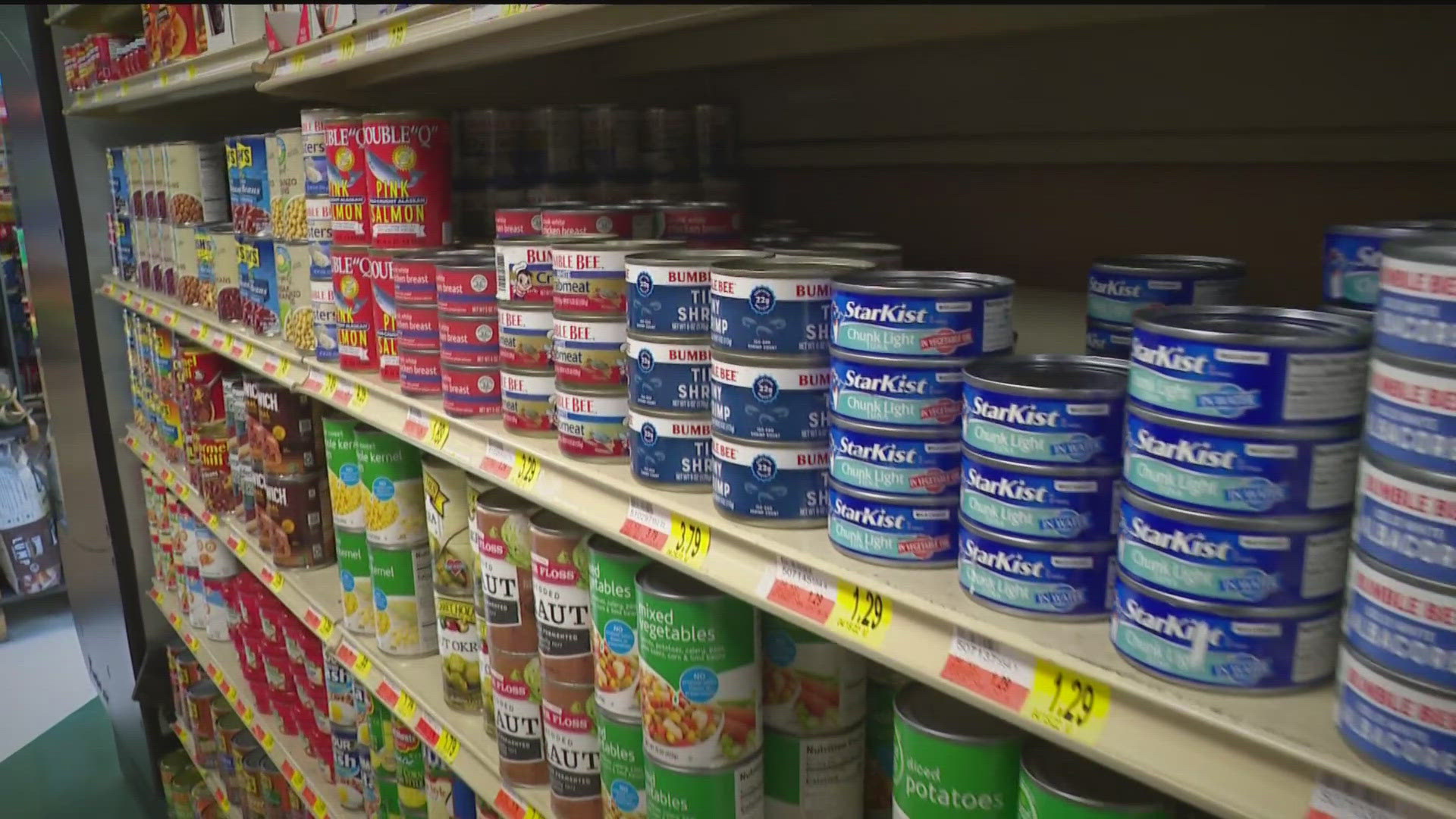EAST POINT, Ga. — The Atlanta Community Food Bank is distributing more food than ever, but leaders say it's still not enough.
"The problem is as soon as that food comes in, it goes right out the door," Atlanta Community Food Bank CEO Kyle Waide said. "Because there's so much pressure on the demand side."
Waide said the organization and its network of 700 partners are seeing record-high visits from families needing food assistance due to inflation and continued high costs around healthcare and housing. More than 230,000 households are seeking help every month, Waide explained, marking an increase of more than 50 percent over the past two and a half years.
"When we talk to our food pantry in our network, what they are telling us is the line is just getting longer and longer," he shared. "That more and more folks, more working families are needing help to make ends meet."
The calls for food support are not isolated to the metro. Find Help Georgia runs a helpline offering resources on everything from housing to employment.
The organization reports an 11% increase in calls related to food pantries between the first and second quarters of the year, while calls about meals jumped more than 1,100%.
Waide said the food bank is working with donors and corporate partners to meet the need, and pantries are working to extend hours and improve access for families. But he also points to the need for help from lawmakers.
"We need Congress to pass a Farm Bill," Waide said. He added it's an action that's been overdue.
"And that Farm Bill needs to include more resources to help with food assistance for families who are struggling right now," Waide said. "We need the state to contemplate that they can make available to grow food assistance programs. We need the state to participate in Summer EBT, which they chose not to participate in this past summer, which will help take more pressure off of food banks."
RELATED: USDA announces more funding for summer food program; Georgia one of 12 states still opting out
Waide said such resources could help food banks sustain support amid what he sees as an unprecedented need.
"We're just seeing so much pressure on neighbors. So much pressure on working families," he said. "We've got to find more resources from the community, from policy leaders on the state and federal level in order for us to continue to meet that demand."
11Alive reached out to the United States Departure of Agriculture (USDA) and Gov. Brian Kemp's Office in response to the strain on food banks. A spokesperson for the USDA pointed to The Emergency Food Assistance Program (TEFAP), which "provides 100% American-grown USDA Foods and administrative funds to states to supplement the diets of people with low incomes."
"The TEFAP program has funded projects through FY25 that will expand TEFAP’s reach," a spokesperson shared, adding that investments also food on "additional food purchases, improving infrastructure, supporting health and nutrition, bolstering local food systems, and promoting access and equity."
Meanwhile, Gov. Kemp's Office said there's no additional statement regarding Georgia opting out of Summer EBT, also known as the SUN Bucks program. The state is one of 12 states not participating in summer 2024, and a spokesperson previously said officials plan to focus on existing summer meal programs instead.
When asked about the need for further support for food banks, Kemp's Office emailed a list of the following programs:
- Seamless Summer provided 2,569,326 breakfasts and 3,221,428 lunches in 2023, with the majority of districts participating.
- 53 districts served meals under the non-congregate meal option for counties with “rural” designations, allowing families to pick up five breakfasts and five lunches per child each week without the requirement to consume the meal onsite.
- Happy Helpings, Georgia’s Summer Food Service Program, reimburses organizations that serve free healthy meals and snacks to children and teens in low-income areas when school is not in session. Children 18 and younger receive free meals and snacks through Happy Helpings. Meals and snacks are also available to persons with disabilities over age 18, who participate in school programs for people who are mentally or physically disabled.
- In the summer of 2023, 2.8 million meals were served through Happy Helpings at 997 feeding sites across the state. Meals are served in communities across the state and are located in a variety of settings, including schools, parks, community centers, apartment complexes, and churches.
- To further increase the availability of free meals and snacks to children, the Georgia Department of Early Care and Learning offered state-funded start-up grants in 2022 and 2023 to organizations willing to establish feeding sites in unserved areas of the state.
- The Farm to Food Bank program, which Gov. Kemp signed into law, has delivered close to 14 million pounds of fresh fruit and vegetables to community food banks across the state, serving in-need communities.

